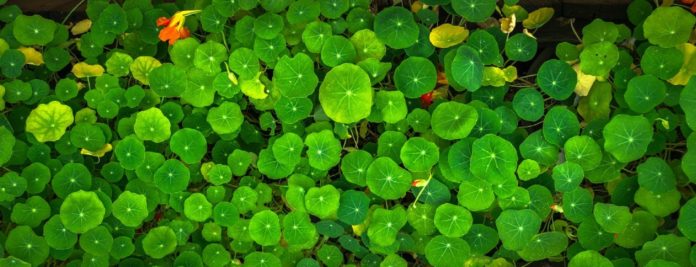Translated by Ka.Naa.Subramanyam
[Those who are familiar with the Ramayana may find it hard to appreciate (may not even like) this story. I do not care about that.- Author’s note]
1
The stone statue of the woman stood by the wayside. It is the statue of a grown-up woman, her flesh distilled into stone and suggestive of human flesh, suggesting the decay of youthfulness. But it had a vigour and a beauty. It was as if a sculptor born for that very purpose has distilled all his dreams of a lifetime spent on contemplating beauty and had made this thing! Even as stone it was so hauntingly beautiful! But in the midst of this expressed beauty the eyes of the statue betrayed a sort of tragic awareness of the absolute. It was a tragedy inexpressible in words. Born of flesh, beautiful, but killing the
desire that flesh is heir to and expressive of the tragedy of all desire of flesh–the statue made the observer sad.
But it was made by the hand of no sculptor-divine or human. It was the flesh of Ahalya turned stone by reason of her husband’s curse.*
It was a forest path unfrequented of men. The statue which is a figure of tragedy itself, unmoved, by human tragedies like the mind and eye of those who have renounced, she lies in the lap of nature. The hot sun burns. Snow falls. The rains wash it. It attracts the dirt of the world and birds and owls sit on top of the statue to attend to their needs–they fly away after relieving themselves. She lies, a stone unmoved, without memories, without feelings.
A few yards away there is a rising mound of white ants; the white ants have moved away long ago leaving the cage, a mound of sand, porous and brittle. Within that risen mound Gotama the rishi sits in meditation without memories, without feelings, forgetting even his
sorrow. Nature treats him as it treats the stone statue.
If you search for it, a little further off stands the house in which they had lived together. It has fallen into ruins now. The roof tree that had raised the roof that had given them shelter in life has become dust in time and has been blown away by the winds; the roof itself has fallen and has lost all original shape. The rains have washed the straight walls into stumps. It is a mound of rubble now. It is like the scar left by a great wound on the landscape.
Far away the river Ganga murmurs by. Mother Ganga, does she know of the sorrow of these two human beings?
Time passes. Time, large chunks of time, eras, eons, have passed. And one day…
It was a hot forenoon. The trees and bushes, however, are green and the breeze is cool and high, blowing like the wind of religion which allows man to forget his sorrows and frustrations and pains and creates a peace in the mind.
Sage Viswamitra passes that way, walking like a lion. He was proud after having done the thing he had undertaken to do; he has his pride of purpose achieved and is meditating on the completion of his sacrifice against odds. The enemies of Viswamitra and his kind, the Rakshasas Mareecha and Suvahu had been prevented from preventing the completion of his sacrifices. Thadaga, that old evil, had been done away with. He was extremely proud of having been the means of relieving men like himself interested in tending to the sacrificial
fire and following the rituals of dharma laid down by the scriptures; the respite from the interference of the evil of Rakshasas was satisfying.
His eyes are not fixed ahead on his path. He often turns backward with merciful and benign looks at two children–yes, children that follow him. They are none other than God-heads born on earth, Rama and Lakshmana, not yet fully grown into adolescence. They are playing hide and seek as they follow sage Viswamitra. They have begun the work of the destruction of the Rakshasas in the world and, unaware of the responsibilities that the task will further involve, they are playing in the forest path, enjoying themselves in childish glee.
Their small feet raise the ages-old dust on the path. Lakshmana is running ahead and Rama is chasing him. They are unaware of the statue by the wayside till the dust raised by Rama’s feet falls on it…
Sage Viswamitra too had not noticed the statue; his mind had not been on present things. The children’s voices raised in glee catch his attention. The glee is infectious. He looks, turns and looks.
Dust raised by Rama’s feet has settled on the stone statue.
A human heart had suddenly turned stone one day long ago. Now that heart, by the touch of the dust of the feet of Rama, begins beating humanly again. The bloodstream that had frozen at that moment in the human form begins to course again. The stone body achieves again the stream and warmth of life. Ahalya becomes conscious of herself.
Ahalya winks her eyes. Her memories return. She has become woman again. This is the lifting of the curse. The curse has been lifted.
Oh God ! This flesh that had sinned is washed free again of sin; it has become holy.
She looks round to find out who has brought her to holiness again—
Who is that divine person who has washed her free of her sin ? That child, that child ?
She falls at the child’s feet. Rama surprised, looks at her and looks up at sage Viswamitra.
Viswamitra is capable of understanding things without being told. He understands. This is Ahalya. The innocent woman who had fallen a victim to the illusion created by Indra. He had put on the shape of her husband whom she loved without end and, thinking that it was her husband, she had submitted to his embrace in all innocence. Gotama’s wife Ahalya she was. He tells the story, as if it were a story, to Rama. And he adds that not far off in that high sandhill like a spider in its web is Gotama himself lost in meditation. See he too has come awake and strides out of the sandhill.
The eyes of Gotama the sage are bright like swords; their recent blindness in self-absorbed meditation is forgotten now. He is ageless and his body is the body of the ever young; his muscles are firm. Like a youth, he advances towards them, like a bemused youth not able to release his mind from the coils of woman.
They will have to submit themselves once more to the web of life. The sin and the sorrow are forgotten in the pleasurable moment of the lifting of the curse. When he had cursed her, he had not thought about how they would resuscitate their lives after the lifting of the curse. He is not calm of mind; he feels a prisoner surrounded by tall walls. He feels afraid, yet comes forward, drawn inexorably by fate.
Rama’s understanding trained by the laws of dharma takes in the situation. He is bright with wisdom but has not had wide experience of the world and its affairs, its events and consequences. He had been well-instructed by sage Vasishta who was a capable unentangler of tangled skeins. He knows no smallnesses. He has the courage to lay
out and follow new paths, though young yet.
What is the nature of this world that knots itself in such skeins and hurts the form that hugs it ? A long term of punishment for a sin not willingly, or knowingly, done? Yama falls at the feet of Ahalya in his turn and cries out “Mother!”
Both sages are pleased with the reaction of Rama. The one sage is the embodiment of courage; courage is all his knowledge. The other has his emotions as the basis of dharma . They both are pleased at the stirrings in the unconscious of the mind of the boy Rama. How courageous, how loveful, how enlightening an idea is this of Rama!
Viswamitra spoke up: “She has sinned with no thought of sin. She is blameless. Accept her.”
The heat of his argument with the husband seemed to convert the very coolth of the blowing breeze.
But Gotama the sage did not argue. He looked at his wife, and at his long since fallen house which was a scar on the landscape. He had no intentions of desertion. The landscape lifeless put on life’s appurtenances and semblances.
Momentary like the crack of a whip unfurled to undo the doings of fate, the powers that passed by passed on. Before sunset at least they should reach Mithila. There was a wedding-to-be holding out its hands to the divine.
Gotama was tongue tied in his wife’s presence. His mind was not free of the taint of what had happened. He had called her whore; that word had it seemed scarred his own tongue. What now to say to her? What words were fitting to utter to her?
“What do you desire?” asked Gotama of his wife. All his intellectual achievement as if it were not in that eddying emotion of his in her presence.
“I am hungry” said Ahalya in a childish lisp.
Gotama went into the forest and gathered fruits for her. He realised that thinking of her he had begun to react as he had reacted to her when long ago he had married her; his fingers plucked the fruits with love.
He told himself: “That love for her was born even at first in a sense of frustration.” He had plucked her away from her parent’s house, wanting her, by circumambulating the cow the symbol of mother earth. He felt that he himself was to blame for all this.
Ahalya’s hunger was appeased.
They were both possessed of totally loving minds. But both had raised walls in their minds which were insurmountable and left them in anguish.
Ahalya was worried that she might not be fit wife for Gotama. Gotama was worried about whether he was fit husband for her. The flowers blooming on the wayside laughed at both of them.
2
It was the desire of Ahalya that Gotama should build a hut for them outside the city of Ayodhya, where men seldom came, on the banks of the river Sarayu. He did. He dwelt in it with her and continued his enquiries into dharma . Now Gotama was fully trusting; he had no more
doubts about Ahalya. Even were she to lie in the lap of Indra, he would not think it wrong. He believed her entirely pure as woman. He felt that his enquiry into dharma would be imperfect without her help.
Ahalya gave him new lease of life and love with endless love in her heart and understanding. Thinking of him, her mind and body would mellow like a bride’s. But some part of her mind was still stone. She wanted that no one should look at her with suspicion; she wanted to escape the eyes of the world. She tried to shield herself from the world of men. She thought of every one she met as an Indra. The fear of sin was become a permanent part of the mind of Ahalya. She had lost her grace of gait; she was always walking circumspectly. She had mislaid her natural innocence and spontaneous speech. Now she rehearsed within herself every word a hundred times before she could utter it. If Gotama said anything she was afraid that even his most casual words might have some inner meaning.
Life had become a hell for her.
One day sage Marichi came. Some time before that sage Thathichi had come. Sage Matanga on his way to Varanasi would look up Gotama and discuss things with him. Oh they were men of enlightened minds but Ahalya’s body was small with shame; her mind was dark with unavoidable thoughts. She was afraid that even her duties to guests might be neglected. She wanted to avoid people–any one–and lie unseen in her hut.
But Gotama’s thoughts were turning into new kinds of enquiries into the nature and quality of dharma . The rules and regulation of dharma
were according to him now, only for those who accepted them willingly. If any one sin or depart from the rule or law of dharma without being
conscious of it, without volition of his own, and even if by it, the whole of mankind might be destroyed, it could not be a sin. Sin is sin only when there is the mind and thought to sin. Others had brought him and his wife together again; he himself had raised up anew his ruined hut; his thoughts were befitting the new life he was leading. He always thought of Ahalya as a sinless one, as a guiltless woman; he accepted her as purest of pure. He thought he was not fit to be the husband of that chastest of women; his anger at what he had thought her sin had made him more guilty.
Sita and Rama would sometimes drive in their chariot and come that way. The human embodiment of divinity, the married yet boyish Rama, struck Gotama as the ideal youth of the world. Rama’s smiles and most casual words could be more than learned commentaries to dharma , thought Gotama. The young couple were bound by bonds that were recognisable to Gotama as his own bonds with Ahalya in an earlier day when they had been just married.
To look at Sita lightened the heart of Ahalya somewhat. Her words and laughter were like water that could wash off guilt and sin of any body. In the company of Sita she could be simple; her eyes could put on their earlier brightness.
Rama and Sita were the ideal politicians nurtured under the care of sage Vasishta. They often came to give new life to the two old people living on the bank of the river Sarayu as on the bank of the stream that was life.
Ahalya was reluctant to move out of her hut into the sight of men. Sita’s friendship, companionship, relieved her somewhat from her loneliness.
Ahalya had promised Sita that she would attend the coronation at Ayodhya. But there had been an emotional upheaval within the palace. It was powerful enough to drive Rama to the forest, Dasarata out of life, and Bharata to Nandigramam with tears and sorrow in his heart.
It could not be measured in human terms. Powers that were beyond human control seemed to have taken charge of affairs, moved pawns castle and king into impossible–possible positions that could not be retrieved. Was it all a game of chess that was over?
Superman Vasishta had hoped to build up a political power that would be ideal under all conditions; he had laboured mightily, with great care, but his schemes were nullified. Yet a small light burned in Nandigramam, tended by Bharata.
The hut on the bank of the river Sarayu fell down again, its rooftree having collapsed. In the desert wind of events Gotama’s enquiries into dharma were swept away. The mind lost its bearings, the heart its faith and human endeavour or thought was zero.
What about Ahalya? Her sorrow could not be measured in words. She did not understand anything. She became a shadow of herself Rama had left for the forest. Sita had followed him, as had his brother. Her mind was stony, dark as it had been when she had stood, a statue of stone by the wayside. But stone statues have no feelings; she was now flesh and blood and could not bear the burden of her emotion.
In the dawn after finishing his daily rites in the river, Gotama came back to the hut.
Ahalya brought water to wash his feet in a vessel. She murmured:
“I am unhappy, restless here. Let us go to Mithila.”
“Start. It is long since I saw son Sathananthan. Let us go.”
He walked ahead even without entering the hut. Ahalya followed him. They walked towards Mithila. Their minds were heavy. Gotama who was ahead stopped to let Ahalya catch up with him.
He took her hand in his. “He said: Don’t be afraid.” Both of them walked towards the city of Mithila.
3
It was the hour of dawn. Both of them were walking along the bank of the Ganga.
Someone is standing knee deep in the Ganga and intoning the Gayatri in majestic tones.
The couple stood on the bank, distant, till the chanting was over.
“Sathanantha!” called Gotama.
Sathananthan came rushing up and bowed to them muttering “Oh my father. Oh my father.”
Ahalya embraced him, her boy, in her mind. But how big has he grown? Her boy had now a flowing beard, was a fully grown man and respected as a sage, rishi, in his own right. Her baby Sathananthan was an alien to her!
Gotama was pleased with the maturity of his son.
Sathananthan took his parents to his hut. He made arrangements for their stay and rest. He himself wanted to set out for the discussion scheduled that day at king Janaka’s court.
Gotama too started with him. The son was pleased with his coming but wondered whether he should not rest a while after the long journey by foot from Ayodhya to Mithila. But Gotama was made of sterner stuff; his flesh had not suffered even by aeons of meditations without food and drink; a long journey on foot could not affect him really. He set out briskly after him. The son wanted to know the direction his father’s thoughts were taking after the recovery of his mother.
Gotama walking along the streets of Mithila city felt that here too the sorrow of Ayodhya was evident and not absent; it had affected this distant town also. The breeze could not hide the subdued sigh that the town exhaled.
People go. They come. They attend to all sorts of normal business. But they lack spirit. It is as if everything is done without any gusto; nobody is intent on what he or she is doing; no one is wholly lost in his work.
Even the elephant which carries the vessels filled with Ganga water for sacrificial bathing lacks its usual gaiety of gait. The priest who accompanies the elephant lacks the gala grace that was his wont.
Both of them entered the king’s discussion room. The assembled wise ones were numerous like an army. Gotama was nonplussed thinking that real research or pursuit of truth could not be found in this crowded marketplace of men. But he was wrong. The guiding spirit was wisdom itself.
King Janaka had at once noticed his coming.
He ran up to them and welcomed the old sage Gotama with grace and due rites and presents and sweet words. He took him with him and made him sit by him. King Janaka’s face too was sorrowful. But his words did not betray that sorrow; his mind was not confused by what had happened.
Gotama hesitated, not being able to determine how he should begin to talk.
King Janaka fingering his long beard said: “In raising his kingdom sage Vasishta did not raise sufficient fences against human feelings and failings.”
His observation touched the heart of the matter.
“But only in the turmoil of feelings and human failings is truth born” said Gotama. “Not only truth but tragedy as well will be born of feeling and failing. Man should first learn to train and restrain his feelings. When one tries to create an ideal kingdom one should have planned the right kind of fences to feeling also. Or else the kingdom itself might fail to materialise ” observed king Janaka.
“What about you here in Mithila!” asked Gotama in a tone that was full of objection.
“Oh I don’t rule. I only try to understand the act of ruling” said Janaka.
Both of them were silent for a while. Then king Janaka enquired with due respect: “How is your new enquiry of dharma proceeding? In what direction does it tend?
“I haven’t begun at all. I shall have to understand where to begin my enquiry. I am blinded by riddles and events that involve me. I feel as one blind.” So saying he stood up and left the king’s court.
He did not attend the court the next day or the day after that. He did not feel as one in that wise assemblage of learned men round king Janaka. He wanted to be alone with his riddles which surrounded him like the Himalayan peaks. He would have even left Ahalya but he did
not want to break her heart.
But king Janaka asked Sathananthan “Where is your father the sage?”
“He is sitting at the foot of the ashoka tree before my hut deep in meditation by himself.”
“Is he doing penance?”
“No. He seems deep in thought.”
King Janaka told himself silently, “He is not free of the waves of the mind. He has not found peace yet”
Ahalya was extremely devoted to bathing in the river Ganga. She would carry the brass vessel on her hip and set out for bathing in the Ganga, even before dawn.
For a couple of days she enjoyed the bathing alone in the river. She let her mind wander far afield forgetting all things and free of the burden of guilt or thought of things past.
But it did not last.
With eyes downcast, when on the third dawn, she was returning to her son’s hut after her bath, she heard the sounds of other women passing her. Their toe rings sounded on the hard wayside. They were the wives of sages residing round about. But when they saw her approaching, they went out of the way giving her the freedom of the road as if she were
an untouchable. And when she passed them, they stared at her.
Behind her she heard them telling each other: “She is Ahalya!” Those words identifying her, as the curse of Gotama had done, burnt her into stone.
She felt she was in a burning ghat. She thought: “My curse has been lifted but evidently my guilt is endless. My sin is inexhaustible.”
She cooked and served food to Gotama and Sathananthan mechanically. “Even the son is an alien now. Aliens and enemies! Why remain here?” she thought.
Gotama, while he was eating, observed her; he could feel that something was wrong but he did not say anything.
Sathananthan too was affected by what was in their minds.
To ease the burden of the moment, he observed: “Athri Maharishi came to see King Janaka. He is returning after visiting Agastya in the south and is on his way to Meru. He said that Rama and Sita had come to see Agastya. It seems that sage Agastya informed Rama and Sita that Panchavati was a good place for their further stay. And they proceeded
to Panchavati. I understand that Rama and Sita are still staying at Panchavati.”
That gave Ahalya the clue. She asked humbly: “Why not we also go visiting holy places?”
“Shall we start now?” said Gotama washing his hands after the meal.
“Now?” asked Sathananthan in wonder.
“What is wrong about now?” asked Gotama and set out with bowl and stick in hand, his feet in wooden clogs and stepped out of the hut.
Ahalya followed him.
Sathananthan was troubled of mind but did not know what to do.
4
Dusk was falling. One’s palm was not visible in the oncoming darkness. Two persons were walking along the Sarayu river bank towards Ayodhya.
The stream of time had absorbed fourteen more years as men calculate them. They had visited many wise men and rishis in various part of the world; they had stayed at many holy places. But wherever they had been, their troubled minds had been with them.
They had gone as far north a Mount Kailas where man cannot set foot. They had looked at it from the distance from on top of snow-clad hills. The height of Kailas was like the height of Sankara’s pure thought unreachable to a man of not strong mind.
They had crossed deserts that were like the stretches of their own mental despair.
They had gone round volcanoes emitting smoke and fire like their own troubled minds.
They had stood on the shores of the unfathomable seas which gave rise to never-resting waves like their own thoughts and minds.
They had traversed paths that were rough and full of thorns like their own lives.
They had been lured Ayodhyawards by the thought that in a few more days Rama would have returned. New life will dawn again.
They arrived at the place where their hut had been on the banks of the Sarayu; it lay in ruins.
He, Gotama, spent the whole night setting up the hut again so that they could live again in it. It took a long night of hard work; it was dawn when the hut was ready.
They, both of them, bathed in the river Sarayu and returned to their hut.
The wife spent her day doing her duties by her husband. Both Gotama and Ahalya were counting the days for the return of Rama. But one cannot cross the river of time though the mind makes attempts at it.
One day Ahalya was returning at dawn after bathing in the river.
Some one, a widow evidently, had bathed before her and was preceding her. Ahalya overtook her but did not recognise her. But she had recognised Ahalya. She prostated herself at the feet of Ahalya, humbly.
It was queen Kaikeyi. She was alone followed by neither court nor
relatives. She had become a sanyasini, a renouncer. Ahalya laid aside her brass vessel, embraced Kaikeyi with both hands, and questioned her, not understanding her plight.
Ex-queen Kaikeyi explained: “In his frantic pursuit of dharma ,
Bharata has forgotten me, his mother.”
Ex-queen Kaikeyi did not sound angry; she was anguished. She was no longer the old Kaikeyi. She had become far from a queen, she was a lonely soul with no support to turn to. Ahalya was nonplussed.
With hands round their waists they went back to the river to bathe again.
“Who was the begetter of the dharma of Bharata and his understanding f it?” asked Ahalya. She was full of sympathy for the tragic queen, though a smile hovered round her lips.
“If a child innocently lights a fire that burns the city, can we punish the child?” asked Kaikeyi.
There should be a fence between the child and fire thought Ahalya; it was a necessary precaution. “But what is burnt, is burnt, isn’t it?”
“But there is no point in not removing the ashes. What is burnt is burnt but the ashes have to be removed and the place made clean again for human beings” said Kaikeyi.
“He who will remove the ashes will arrive in two days” said Ahalya.
“Yes. He will be back in two days!” said Kaikeyi. And Ahalya realised that Bharata was not expecting the return of Rama with more wholeness of heart than Kaikeyi.
When the next day she came to meet Ahalya, she was anxious; she was broken of heart and mind. She said: “Messengers have been sent in all the directions, There has been no evidence of Rama returning. No sign of his coming anywhere. From where and how will he come within the next day? Bharata is making ready to sacrifice himself in the fire; he
has instructed them to dig the pit and prepare the fire. If Rama should not come by dawn tomorrow….”
Bharata’s sacrificing himself in the fire would be expiation for the crime of ambition to rule over the Kingdom which she had given witness of, she seemed to imply. It was not enough if Bharata should sacrifice himself.
Ex-queen Kaikeyi after a moment said: “Bharata’s sacrificial fire is a public one. I too will cast myself in the fire but in a private one, secretly, unobserved of any one!” She was determined; there would be no changing of her mind.
It was the same as it had been fourteen years ago. Was not the curse on Ayodhya yet lifted?
Ahalya’s mind was tortured beyond endurance. She felt that it was her guilt for which Ayodhya was paying.
“Cannot sage Vasishta prevent Bharata with his wise counsel?” she
asked.
“Bharata my son is amenable to dharma , not to Vasishta” said Kaikeyi.
“Oh what use is a dharma which does not listen to human wisdom? Dharma then will become the enemy of humankind.”
Ahalya did not give up hope. She hoped that Bharata might listen to the words of her husband. She was hoping against hope that Gotama might prevail upon Bharata. She felt that life would be intolerable if Ayodhya should be caught once again in the coils of tragedy.
Gotama agreed to her wishes but could not prevail upon Bharata.
Hanuman appeared. And the fire of sacrifice was put out. The tragedy was averted. Dharma danced the dance of victory.
Even great sage Vasishta smiled in the shadow of his thick beard. At least, fourteen years after, the ideal kingdom of his was to be re-established.
Gotama felt he had no place in the galas of gaiety and returned to his hut on the banks of the Sarayu. Ahalya was glad at heart that Rama and Sita would come visiting her. After the hubbub of their return to Ayodhya was over, they did come, without retinue or bodyguards, in their chariot.
Ahalya noted when Rama got down from the chariot that his brows were canalled by lines of experience. Sita’s beauty had mellowed and there was the weight of experience behind her brows also. Their smiles were entrancing, wholly mind-enchanting.
Gotama took Rama with him and went for a walk on the banks of the river.
Ahalya looked at Sita as a mother would look at her daughter. She led her in. They were full of smiles as they talked.
Sita spoke without a shadow of grief. She detailed how Ravana carried her off, her loneliness in the prison of Lanka and the coming of Rama to release her. She spoke without sorrow or pain or regret, as if saying that there was no cause for sorrow, having found her Rama again.
Sita told of the testing of her chastity by fire. Ahalya was thunderstruck.
“He asked you to prove your purity by fire? Why did you submit yourself to it?” she asked.
“He asked for it. I underwent it” said Sita calmly.
“He asked you to prove your purity?” cried Ahalya. She was transported with anguish and anger.
He had–even Rama had–one test for Ahalya and another for his own wife.
Was the idea of value a hypocrisy, a humbug? Is Gotama’s reaction to woman, errant mankind’s curse? Cannot woman ever escape her curse?
They both fell silent.
“Purity has to be proved for the world, is it not?” asked Sita quietly, a little while later. She laughed.
“Does one not know for oneself? Can one prove even the truth to the world?” She was wordless in anger.
Ahalya continued: “Can anything be proved beyond suspicion? Does truth need proof? If the heart does not understand, will it be enough if the world understands? But where is the world? What is it?”
The men had returned. Their talk was heard outside the hut.
Sita stood up and went out to return to the palace. Ahalya did not accompany her.
Rama’s heart was touched; his legs disturbed the dust–the dust from his feet which had once settled on Ahalya and made her human again. But that was long ago.
The departing chariot of Rama and Sita made noises in the still dusk.
Gotama stood at the door of his hut and looked up, deep in thought. He looked up and saw the Trishanku constellation in the sky.
A new consciousness, a new wave of thought rose in the cavern of his mind. Before he could pursue it, it disappeared like a streak of lightning.
He would suggest to Ahalya that they should adopt a child. A child’s lisping might lighten the burden of her mind, he thought, and make them take an interest anew in life.
Gotama went into the hut.
Ahalya sat lost in thought, It was almost as if she was unconscious. She was reenacting the drama with Indra of old.
Gotama went near to her and took her in his arms. Gotama, the false Gotama! To her it was Indra again come in the form of Gotama. Slowly her heart became stone again. There was no need for Gotama’s curse now. She felt her heart become stone. What peace–what joy that she could not feel again!
Gotama looked at Ahalya in surprise. It was a stone statue that lay in his arms.
Ahalya, his Ahalya, had become stone again.
Her mental anguish was over.
Crossing the snowy deserts, a lone figure was passing swiftly towards Mount Kailas. He places his feet on the uncertain paths with firmness.
It was Gotama himself. He had become a sanyasin, a renouncer of the world.
(*Ahalya according to legend errs with Indra and is cursed to stone by her husband Gotama. She becomes woman again when Shri Rama’s foot touches her)
(Note: The above is the translation of the Tamil short story: சாப விமோசனம் – Saaba Vimosanam )
About the author & translator :
Pudhumaippithan (also spelt as Pudumaipithan / Pudumaipittan )was the pseudonym of C. Viruthachalam (25 April 1906 – 5 May 1948). His active writing period was less than 15 years (1934–46) in which he wrote nearly 100 short stories, an equal number of essays on a variety of subjects, 15 poems, a few plays and scores of book reviews. He was the first Tamil writer to successfully use a dialect of Tamil other than that of Chennai or Tanjore. Most of his characters spoke the Tirunelveli dialect. His stories were set either in Madras or in Tirunelveli, the two places where he spent considerable portions of his life. His writing style had a mixture of colloquial and classical words.
Ka. Naa. Subramanyam (31 January 1912 – 18 December 1988) was a Tamil writer and critic from Tamil Nadu, India. He was also popularly known by his Tamil initials , Ka. Naa. Su. In 1986, he was awarded the Sahitya Akademi Award for Tamil for his literary criticism Ilakkiyathukku oru Iyakkam (lit. A Movement for Literature).



















